If you are a distributor of industrial cranes and components, you may be wondering how to get everything you deserve out of a partnership with an OEM.
Crane distributors switch OEMs for a number of reasons. Sometimes the fit isn’t right. Sometimes the product mix changes. Sometimes the distributor and the Hoist and Crane OEM take divergent strategic directions.
If you are not feeling the love anymore in the relationship between your distributorship and your OEM, or if you are a distributor looking to add another OEM to the line of products you carry, review these five considerations looking for or evaluating an OEM.
Reason 1: Your two business models don’t align
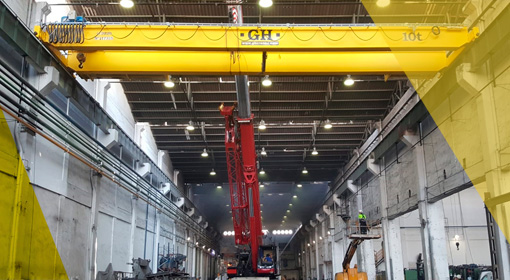
Are you a crane dealer/builder whose business model is to sell complete offerings? You may discover that your OEM, either the one you currently have or the one you are considering partnering with, does not think the same way that you do.
Some OEMs look at their dealership network as a way to sell and distribute crane components only—not complete crane systems. If this sounds familiar, take heart. Some Hoist and Crane OEMs partner with dealers to sell both complete crane systems and crane components. GH Cranes and Components encourages their dealers to sell their entire product line, including standard C class components, heavy-duty built-up hoists and Rubber Tire Gantry Cranes.
Reason 2: Your OEM cuts you out of lucrative deals by selling direct
GH Cranes and Components does not limit your opportunities as a dealer. They gladly work with you to leverage their engineering, consulting and sales resources to win and manage projects. They then encourage you to become the local support service provider with the OEM’s help, and in the event that you’re not capitalized to manage a large project, they will take the financial risk and partner with you to win the project by contracting you for all of the local work.
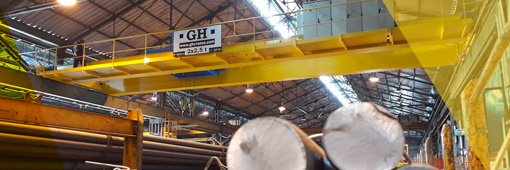
Reason 3: Your OEM wants to mine the parts market for all that it’s worth
A large percentage of your annual revenue likely comes from the sale of crane parts and components. We say “likely,” because some crane OEMs price their parts impossible high, leaving you to explain to your customer why some replacement parts cost more than the original unit.
Reason 4: Your OEM is not vertically integrated
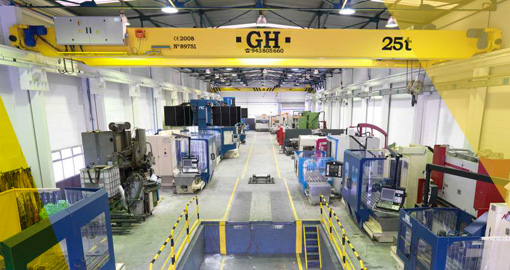
Smart crane OEMs are vertically integrated. That is, they combine a number of otherwise separate manufacturing processes, controlling them from a single source. The chief benefit of your OEM controlling the entire supply chain is that they (and you, indirectly) regain the control that is lost at each stage of the manufacturing process.
If you are a crane dealer, you may have noticed first-hand the challenges of partnering with a crane OEM that is not vertically integrated. Their cranes and components, for example, are built from whomever offers them the lowest price on the parts that comprise the hoist or crane. What does that mean for you? Reduced quality of materials and a low price. Do you want to be the cheap supplier, or the partner they refer and call next time?
Reason 5: Your OEM is just plain slow
How long does it take your crane OEM to ship a part, component or a complete crane system? How long do they take to fabricate custom components? How available are parts?
If you are like many crane dealers, your OEM is too slow. But the good news is that some crane OEMs (particularly the ones who are vertically integrated), respond to dealer requests quickly. GH Cranes & Components, for example, routinely builds custom hoist trolleys in 2 – 3 weeks, a speed unheard of among other OEMs. Add to that US parts availability and 24/7 tech support and you have found an OEM that is here to support YOU!
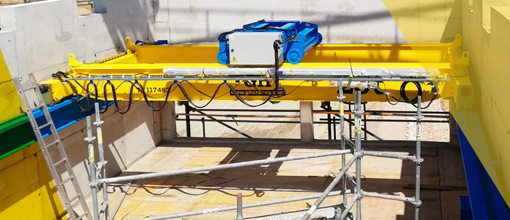
Conclusion
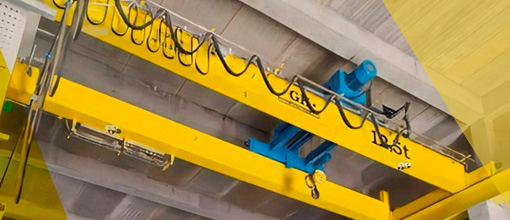
If you are looking to establish a win-win relationship with a crane OEM, compare them with this list. A good OEM has a business model that aligns with yours, includes you in all sales opportunities, lets you earn a fair profit on parts without having to pass on exorbitant prices, passes on the benefits of being vertically integrated, and is quick to respond to your needs.
In short, a good crane OEM treats you as the strategic partner you are. They let you sell their entire product line, they deal fairly with you, and they encourage you to pursue all sales opportunities that work for you. Because those same opportunities work for them.
